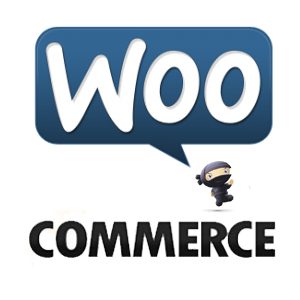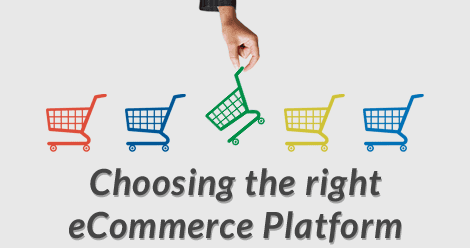Table of Contents
ToggleThis blog has been reproduced with the explicit permission of TkXel , MarkiTech‘s technology partner.
Written by,
Umair Maqsood,
Digital Marketing Manager at TkXel
Your eCommerce business is different from all other businesses. Whether you sell services, products or digital downloads, you need an eCommerce platform, a software that suits the needs and requirements of your online store.
Just as the process of selling online has changed, relevant eCommerce functions and features have evolved, as well. Recently, the importance of having a simplified selling/shopping experience on smartphones and tablets has vaulted to the forefront.
How your business evolves and improves over time depends on what eCommerce platform you choose early on. It is important to choose a platform that is flexible, secure and scalable, because your platform affects everything, from the user experience to your bottom line. Several different options are available; while some are simple and attractive, others of lower quality can be bought at cheaper rates.
To begin with, here are a few things you need to consider before choosing your eCommerce platform
- Is it scalable?
- Is it affordable?
- Is it beautiful?
- Does it offer a seamless user experience?
- Does it come with all the tools and features you need?
- What support options does it provide?
- Is it secure?
Based on these considerations, we’ve dissected a few top platforms available on the market to help you get off on the right foot by choosing the best platform for your online business.
SHOPIFY
Boasting over 150,000 users, Shopify has emerged as the leading, most intuitive and highly tasteful eCommerce platform in the market. To fit a variety of business needs, the SaaS proffers varying degrees of functionalities and services. You can purchase the services for as low as $14 per month or get an unlimited package for $179 per month, which includes unlimited storage, products and bandwidth. Furthermore, packages are also available for enterprise needs and high-volume sales.
The software is mainly tailored for small-to-medium-sized e-businesses, but Shopify’s enterprise version is also very much in demand. All credit card processing fees include Shopify’s flat monthly cost, allowing retailers to predict variable costs easily and to avoid setting up PayPal and Stripe. Another benefit with Shopify is the in-store point-of-sale system, which allows retailers to accept credit cards in person.
Several apps on the market exist to assist your business, but they can be very costly. Shopify stores come pre-hosted, saving you valuable time, and guaranteeing security. But, this also means that you’re left with little space to maneuver your store, as Shopify comes loaded with a robust theme pack.
To sum it up, if you are in the small-to-medium-sized business category, and could benefit from point-of-sales systems both online and offline, and aren’t tech savvy enough to do it yourself, Shopify is the perfect solution for you.
MAGENTO
Magento is often described as the most convoluted platform available for e-retailers, a gargantuan of the eCommerce realms. While there’s a free ‘Community’ version available, the costs to customize and develop a Magento store and the server and maintenance charges are very high, making it less affordable for many.
Magento is engineered for different-sized businesses and offers two different levels of services now; Community and Enterprise. Magento Community is free, though you pay for hosting it, and caters to the needs of medium-sized businesses. Magento Enterprise offers maximum functionality, and of course, is heavy on the pocket. Depending on your requirements, the price can vary from $50,000 per annum and higher. The Enterprise version is being used by giants like Lenovo, Samsung, Nike, etc.
Earlier, Magento offered three levels of services, but Go was discontinued in early 2015 because it did not offer state of the art solutions to e-retailers. Magento Go was priced for small retailers and was the most feasible, ready-to-go option available back in the day.
Magento is perfect for businesses that handle high sales volumes and have unique business needs. It is recommended not to consider Magento without an experienced team that knows their way around.
VOLUSION
Volusion has been in the eCommerce business since 1999, but was never quite able to make a name as big as Shopify or Magento. Volusion finds its strength in the areas of marketing support and add-ons.
Volusion’s pricing plans are highly flexible and offer help to expand all sorts of online stores, from retailers having less than a hundred products to those with unlimited merchandise, allowing stores to deliver more.
Volusion can help you organize promotional events, run email campaigns and issue gift vouchers. The problem with Volusion, however, is that most of its value-added features are only available for higher prices. It can become a one-stop shop for added costs, but this might elude smaller businesses.
Overall, Volusion has one of the best set of features, a simple interface, and offers integration with all major social networks, making it one of the best options available to e-retailers.
Volusion is your best bet if you seek new revenue channels online and have already established yourself as an enterprise. Also, if your marketing strategy revolves around heavy social media campaigns, opt for Volusion.
WOOCOMMERCE
WooCommerce is a free eCommerce toolkit by, and for WordPress. It boasts a lively ‘world’s favorite eCommerce solution’ tag line on the basis of its ability to give you ‘complete control’ over your sales.
WooCommerce 
WooCommerce is extremely flexible and offers a variety of customization options. Besides this, it helps set up your store in no time. It offers an immense amount of ease and convenience for people who have managed WordPress.
The only drawback, well not actually, but still, is that WooCommerce is available for installation on WordPress websites only, so, if you aren’t using WordPress as your content manager, you cannot deploy WooCommerce.
We recommend WooCommerce only if you have the budget for a small-to-medium scale business and have the services of a small technical team close by.
OPENCART
A MySQL and PHP-based platform, OpenCart is functional right out of the box. OpenCart has a simple design which suits businesses trying to find their footing in the eCommerce arena. It may not offer as much luster as larger platforms do, but its straightforward feel makes it a valuable asset for small businesses.
It is easy to integrate OpenCart with popular payment tools such as PayPal and WorldPay. OpenCart is free and charges a very nominal cost for development, making it ideal for small retailers. However, further add-ons and extensions require upping the budget as you grow. It is also convenient, as OpenCart can be self-hosted rather than being subscription-based, but this means that security will always be your responsibility. Furthermore, OpenCart lacks customer and technical support, as it is definitely more basic than most of the eCommerce platforms available on the market.
As we see it, OpenCart is best for you if you’re instituting a limited product start-up and have a small budget. It is highly recommended to have a techie on-hand who knows about eCommerce platforms before installing OpenCart.
Conclusion
Keeping in mind the considerations we listed earlier, our best choice for an eCommerce platform is Shopify. From features to ease of access, along with templates, security and customer support, Shopify supersedes all others by far. But choosing an eCommerce platform requires focus and foresight. You might want to deploy the cheapest, or the most renowned solution, whichever tempts you more, but it is highly recommended to choose a platform that suits your project the most. The list provided above includes leading eCommerce platforms, and you can always consider this list as a guide to choosing the most suitable CMS for your e-business.
We hope our analysis has given you a fair enough insight into the world of eCommerce. You can start off at any level, but it is recommended to wind your way upwards, beginning with the most basic of platforms to major ones, as you build and expand your e-tail shop. When you feel your profits are flowing smoothly and your client-base is increasing, you can always choose to spend more, adapting and improving accordingly.
Share with us any eCommerce platform you like and why?
Do you want to know which of these platforms will suit your business and why? Or do you think your own customized e-commerce platform would suit your requirements better? With a combination of both Application Development AND Marketing Strategy under our umbrella, we can figure out the right solution for you. Sign up now for our absolutely free 30-minute consultation to get the ball rolling.
[cta]





